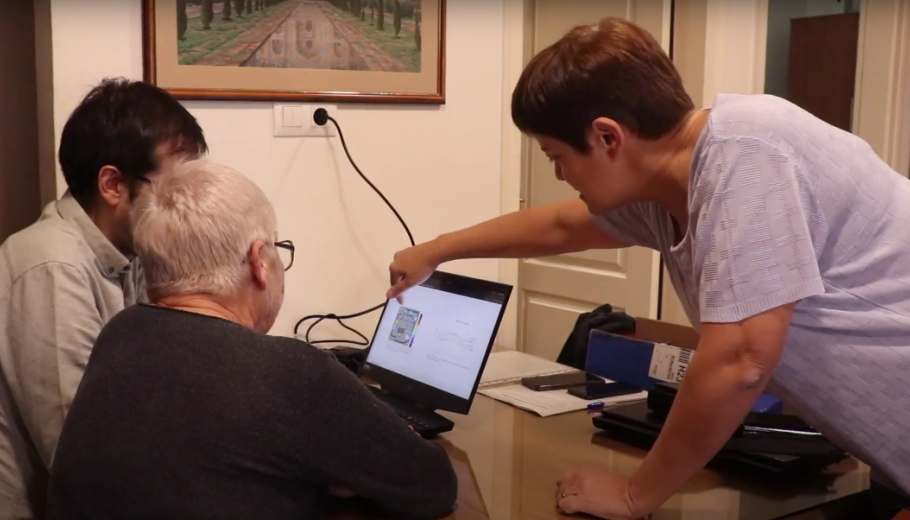
Medicine has been instrumental in extending people's life expectancy. However, this has also brought new challenges. More and more elderly people are living alone at home and need personalised assistance. With this objective in mind, Suara Cooperativa has teamed up with La Salle-Universitat Ramon Llull and the Girona Biomedical Research Institute. Josep Trueta (IDIBGI) to use new technologies to gain a better understanding of the needs of people who require accompaniment.
Specifically, this is the SuaraMap project, which uses sound sensors to detect the movement in each of the rooms and the time spent by the person in each of them. This makes it possible to create an acoustic map, which identifies the behaviour patterns of the resident of the home.
"They would be like movement sensors, but they are sound sensors, which allows us to see that the person is doing a basic activity of normal daily life," explains Ainhoa Montalà, a member of SuaraMap, a project funded by the Centre for the Development of Industrial Technology (CDTI) of the Ministry of Science and Innovation.
In detail, what is done is to measure the sensor signals and then process them using an algorithm that allows a sound map of the home to be made. In this way, the person's habits can be monitored. If these change, it can be a trigger for a risk situation, a drop in functional performance or a deterioration in cognitive abilities. "These changes in habitual sound patterns could be an indication that the person is starting a pathological process that leads to a loss of functional independence, such as a neurodegenerative disorder like Alzheimer's disease," explains Josep Garre, a researcher at IDIBGI and the University of Girona.
However, this is not the only advantage of this system. "The detection of acoustic elements is not a very invasive technology in people's lives," explains Rosa Alsina, researcher at La Salle-Universitat Ramon Llull. She adds that the main challenge of this collaboration with Suara Cooperativa was to apply the technology to improve the care of elderly people living alone "without interfering in their daily lives".
In 2021, a test was carried out in a real environment to identify behavioural patterns in the home and establish a technological basis for developing an active monitoring product, an initiative that is planned for further development.
Now, in collaboration with the University of Girona, the project has also secured funding for a further two years. During this period, artificial intelligence will be applied to detect cognitive deterioration in elderly people living alone.
You can find the pilot test here: